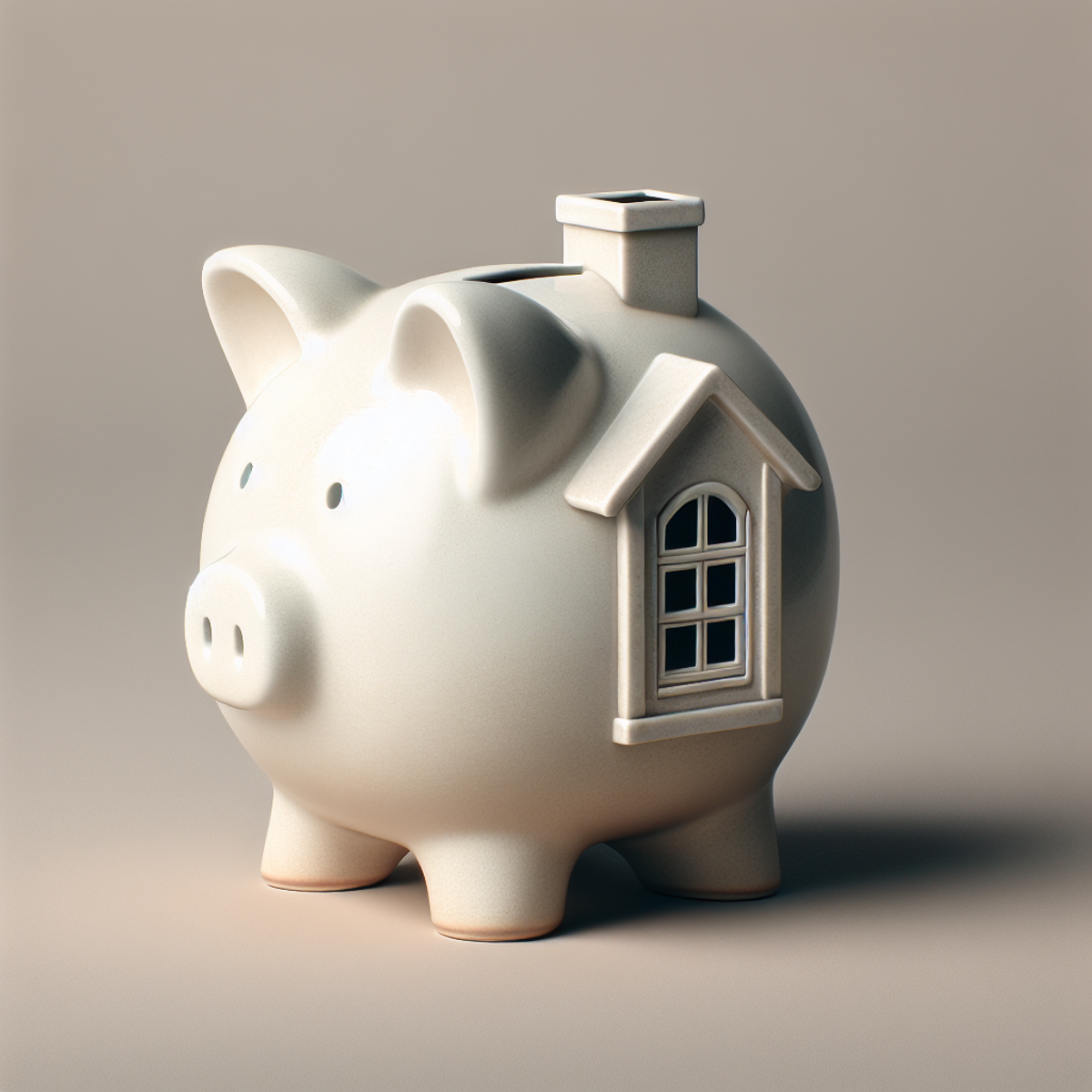Introduction
The City of Toronto has implemented the Vacant Home Tax, a levy targeting residential properties that remain unoccupied for extended periods. As part of efforts to alleviate the housing crisis and bolster municipal funds, this tax incentivizes property owners to either inhabit or rent out their homes.
With the Feb 29th deadline fast approaching, property owners must promptly declare their property’s occupancy status to avoid this significant financial charge.
In this article, you will gain a comprehensive understanding of the Vacant Home Tax and receive actionable advice to ensure your property does not incur this tax. Whether you’re a seasoned homeowner or new to the property scene in Toronto, these insights will help navigate the regulations and leverage exemptions effectively.
Understanding the Vacant Home Tax Regulations in Toronto
The City of Toronto has set forth Vacant Home Tax regulations that are designed to encourage the occupancy of residential properties and contribute to alleviating the housing shortage. Here is a breakdown of what you need to know:
Specific Regulations
The Vacant Home Tax is levied on homes that are unoccupied for more than six months in a year, with a tax rate set at 1% of the assessed property value for 2022-2023, and increasing to 3% from 2024 onwards.
Residential Property Owners
If you own residential property in Toronto, you’re required to declare its occupancy status annually. The definition of residential property owners includes individuals who own residential real estate directly or indirectly (e.g., through a corporation, partnership, or trust).
- Principal Residence: A home you personally occupy as your main residence for at least six months within the same calendar year.
- Secondary Residence: Any residential property you own in addition to your principal residence that may be occupied by tenants or left vacant.
- Vacant: A property not consistently occupied by anyone for a cumulative period of six months throughout the year.
Assessment for the Vacant Home Tax is based on these definitions. You declare your property as either your principal residence, secondary residence, or vacant. If your property is deemed non-principal and vacant without qualifying exemptions, it will be subject to this tax.
Understanding these categories is crucial because they determine your tax obligations. It’s essential to accurately declare your property’s status to avoid unnecessary taxation. If your circumstances change, such as converting a secondary residence into a rental unit, you must update your occupancy status accordingly with the City of Toronto.
Consequences of Non-Compliance with the Vacant Home Tax Regulations
Property owners in Toronto must be aware of the consequences associated with not following the Vacant Home Tax regulations. Not following these rules can result in significant financial and legal problems.
- Financial Penalties: If you don’t declare if your property is occupied or not by the February 29th deadline, you could have to pay a tax of 1% of the assessed value for 2022-2023, which goes up to 3% for 2024 onwards. This penalty can be a lot of money, especially for expensive properties.
- Legal Repercussions: Besides financial penalties, consistently not following the rules or making false statements may lead to legal actions. The City can take you to court under local laws or other relevant laws, which could result in fines or criminal charges.
- Interest Charges and Additional Fees: If you make late payments, you will have to pay interest that increases over time, making the total amount owed higher. The city may also add administrative fees to cover the costs of enforcing the rules.
- Liens on Property: In very serious cases where you don’t pay at all, the city can put a lien on your property. This means you won’t be able to sell or get a new mortgage until you pay all the outstanding taxes, penalties, and interest.
Remember that not knowing about these regulations doesn’t mean you won’t be held responsible. Every property owner has a duty to know what they need to do under the Vacant Home Tax and take action accordingly. Make sure you stay updated about deadlines and requirements so you can avoid getting penalties you don’t want.
Tips to Establish Your Property as a Principal Residence and Avoid the Tax
To protect your property from being affected by Toronto’s Vacant Home Tax, it is crucial to clearly establish it as your principal residence. Here are several tax avoidance strategies that will help you meet the necessary criteria:
Strategies to Establish Your Property as a Principal Residence
- Document Your Stay: Maintain records of your occupancy with evidence such as bills, government-issued IDs, or employment records that show your address.
- Change Your Address: Update your address for all official documents and correspondence to reflect the property in question as your main residence.
- Stay for Six Months: Ensure you physically occupy the property for at least six months within the year. Consider documenting your presence with time-stamped photos or receipts from local businesses.
Measures to Prevent Your Property from Being Classified as Vacant
- Regular Maintenance: Perform consistent upkeep on the property, which includes lawn care, snow removal, and other regular maintenance tasks.
- Utility Usage: Keep utilities active and maintain a record of usage. Regular consumption of water, gas, and electricity signals continuous occupancy.
- Neighborly Engagement: Involve neighbors or a property management service to keep an eye on your home; they can act as witnesses to its occupancy status.
By implementing these measures diligently, you can demonstrate to tax authorities that your property is indeed your principal residence and thereby exempt it from the Vacant Home Tax.
Meeting the Deadline: How to Timely Declare Occupancy Status for Toronto Properties
With the Feb 29th deadline fast approaching, it’s crucial to ensure that you accurately declare your property’s occupancy status. This is a vital step in avoiding the Vacant Home Tax.
Timely declaration of occupancy status ensures compliance with tax regulations and eliminates potential penalties. Here’s a step-by-step guide on how to complete this process:
1. Gather Necessary Information:
Prepare your property details, including address and assessment roll number. These are required for the declaration form.
2. Access the Declaration Form:
Visit the City of Toronto’s official website and locate the Vacant Home Tax section. Here, you can find the declaration form for occupancy status.
3. Fill Out the Form:
Provide all requested information on the form. Be sure to indicate whether your property was occupied or vacant during the specified period.
4. Submit Before Due Date:
The deadline for submission is February 29th. It’s essential to send in your completed form before this date to avoid fines or penalties.
The City of Toronto also provides various support services to assist property owners in this process. These include online resources, FAQs, and customer service hotlines.
In-person assistance centers are another available resource for those who prefer face-to-face guidance. These centers offer help with form submission and provide answers to any tax-related queries.
Remember, accurate and timely declaration is not just about compliance; it’s about playing a part in addressing Toronto’s housing crisis.
Challenging a Vacant Home Tax Assessment: Process and Considerations
When you receive your Vacant Home Tax assessment, it’s crucial to ensure its accuracy. But what if you believe the assessment is unjust or incorrect? The City of Toronto provides a structured process for homeowners to dispute their assessments.
To initiate an appeal, you must submit a formal Notice of Complaint to the Assessment Review Board (ARB) within 120 days of the issue date of the assessment notice. This should include detailed reasons for your disagreement with the assessment.
Key Considerations when Deciding Whether to File an Appeal
Here are some key considerations when deciding whether to file an appeal:
- Evidence Gathering: You need robust evidence to support your claim. This could include photographs showing occupancy or documents proving that your property was under renovation during the vacancy period.
- Potential Risks: Keep in mind that the ARB may increase your assessment if they find it was initially too low. Therefore, ensure you have a strong case before proceeding.
- Time Commitment: The dispute process can take several months and may require attendance at hearings or meetings.
Remember, challenging a tax assessment should not be taken lightly. It requires serious thought and careful preparation. If in doubt, seek advice from a tax professional to help navigate this complex process.
The Impact of the Vacant Home Tax on Toronto’s Housing Market
The implementation of the Vacant Home Tax was a strategic move by the City of Toronto to combat the ongoing housing crisis. By imposing this tax measure, vacant properties are discouraged, thus increasing the availability of housing units for purchase or rent.
Increase in Housing Supply and Affordability
The housing market impact is multifaceted. As more properties become available for occupancy, it potentially eases the upward pressure on property prices and rents. This increased supply helps to balance out demand, making housing more accessible and affordable for Toronto residents.
Generation of Tax Revenue for Affordable Housing Initiatives
Another key aspect of this policy relates to the generation of tax revenue. The funds collected through the Vacant Home Tax play a vital role in supporting various initiatives aimed at enhancing affordable housing opportunities in the city.
- The revenue from this tax goes directly towards creating more sustainable and equitable housing options for those who need them most.
- It facilitates an increase in rental supply by funding affordable housing projects.
- A portion of these funds also supports social programs that assist Toronto residents with their housing needs.
Through these mechanisms, the Vacant Home Tax demonstrates its potential to significantly impact Toronto’s housing market, driving change towards a more balanced and inclusive outlook.
A Lesson from Vancouver: Evaluating the Success of Their Vacant Home Tax Program
When examining Vancouver’s Vacant Home Tax, implemented in 2017, notable insights emerge that are beneficial for Toronto’s approach. Vancouver’s policy served as a pioneering blueprint for other Canadian cities addressing similar housing market issues. The tax spurred property owners to either rent out their previously vacant homes or sell them, thus contributing to an increased availability of housing.
Comparative Analysis of Vancouver and Toronto
Key Similarities:
- Purpose: Both policies aim to alleviate housing shortages by penalizing property vacancy.
- Tax Structure: They share a similar tax framework—a percentage of the property’s assessed value.
Key Differences:
- Rate of Tax: Initially, Vancouver imposed a tax rate of 1% which was later increased, while Toronto launched with a rate set at 1% and escalated to 3% from 2024 onwards.
- Results: Vancouver saw a decrease in vacant properties by approximately 25% within the first year, signaling a successful initial impact.
By comparing these aspects, Toronto can glean valuable lessons:
- Tailoring the tax rate to prompt desired outcomes without overburdening property owners.
- Monitoring the policy’s effect on vacancy rates and making data-driven adjustments.
The success in Vancouver underscores the importance of continual evaluation and adaptability. As Toronto navigates its path forward with the Vacant Home Tax, insights from Vancouver serve as guiding beacons for policy refinement and implementation strategies.
Conclusion
Act now and avoid the Vacant Home Tax in Toronto. Understand the regulations, make sure your property is compliant, and declare its occupancy status before the Feb 29th deadline. It’s not just about avoiding a financial hit – it’s about doing your part for a balanced and sustainable housing market in Toronto.
Property owners may find it beneficial to consult with a tax professional for personalized advice, especially in complex situations. They can guide you through the intricacies of the law, ensuring that you are well-prepared for any potential tax obligations.
Vacant Home Tax measures like those implemented in Toronto and Vancouver are more than just revenue generators. They are tools used by cities to address housing shortages and affordability issues. By encouraging property owners to rent out or sell vacant homes, these taxes increase housing availability and contribute to more sustainable urban development.
Remember, every small step towards compliance helps in creating a better future for our city. So, don’t wait. Take action today!




